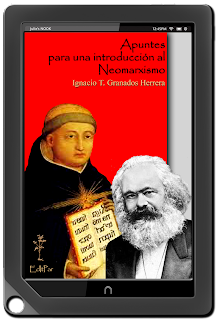The young and the new Pope
The Young pope and The new pope are just
different sessions of the same series, supposedly called The pope; but we have
to say supposedly, because the link between this two shows is bizarre and subtle,
not obvious. First, the aesthetic change from one to other like the day to the night,
and even the texture of te script; but at some point, the writer comes to move
this shows as a two parallel subtramas, that communicates one to the other.
So, it’s clearly a new kind of phenomena, that
grows under the surface of the new media, with its own power and aesthetic. The
differences are abysmal, from a more conventional approach on the first, and a
crispy experimentation on the second; starting with the main drama, with the
election of a new pope on the first series, unexpectedly American and young (John
Paul II was handsome); and with an apparent more conventional election of a British
aristocrat on the second, which end being a former punk and a kind of family junkie.
Let’s be clear here, but popes are a kind of family
junkies, with a pass that burden their present life; truly in one case more
than in the other, but both at the end. What is different here is the weight of that
conflict on the general drama, through the strength of the characters; with a
very strong and even rigid bishop as the young pope, and a very weak and
inconsistent on the new pope. At the end, after a lot of paradoxes and plot's twits, you will see how the strength becomes weakness and vice versa; but
even that is very subtle, without the vulgarity of a moral discourse, more like
a wonder about life.
As elements to sustain the structure of both,
some characters and the scenario of the Vatican and its relationship with the
Italian politics; and in both cases, all the characters are superbly constructed
and acted, with profusion of great names and production. The interesting part
here is the script, and its difference from one the other, which is not only
aesthetic but also relative to the plot; both valid and legitimates in their
own and in their mutual interaction, but clearly distinguishable.
One of the main differences comes with the
character of Sofia du Bois, as the marketing director for the Vatican; which in
the second grow from a secondary to a main character, supporting one of the
multiple subplots. But you can see the differences from the very start, with
the credits, a work as superb as the others aspect of the production; but in
this case directed to remark the difference of tone in both shows, from the
subtle politic of the first to the psychedelic drama of life in the second.
This element of psychedelic texture is also a
very dramatic tool, for the writer to set the general atmosphere of the
subplots; with a profuse use —not abusive— of color and nudity, more remarkable
with its display of not so young but undoubtedly beauty of bodies and sex. In
general, The new pope is a very experimental approach to cinematography,
compared to The young pope; it uses a lot of symbolic elements, not only visual
but even in whole characters, stringing the diapason of dramaturgy.
 |
| Libros en Kindle |
The series closes all its stories but leaving
a lot of questions without an answer; and the script even play with that
paradox, as if its own purpose were to question all certainty about everything.
The series is good by its own in all its aspects, but also shows itself as a new
way of narrative, with its own possibilities; not without flaws, of course, but
flaws that could be risky moves. more that mistakes. About all, no body with special
attachments to Catholicism should see this shows, because they are not suit for
emotional comfort or religious sentiment; they rely just on the discomfort of reality, and about all
exploits the contrast between the harmony of liturgy and the sharpness of
political manipulations, and is great at that.






